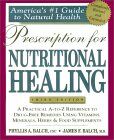To Our New Site |
To Our New Site |

Dietary Guidelines
If breastfeeding
Avoid dairy products and other foods which may cause problems such as chocolate, caffeine, broccoli, cauliflower, peppers, beans and spicy foods.
If bottle feeding
Check the formula the baby is taking. Maybe a change in formula will help the problem.
Check with the baby's physician.
Try using a bottle that allows less air to be sucked by the baby.
Sit and hold the baby during feedings.
Nutritional Supplements
Acidophilus and Bifidophilus:
These may help in digestion.
If breastfeeding, the mother can take the acidophilus supplement.
Babies can take a small amount in the formula. (open the capsule - 1/8 teaspoon in 8 ounce bottle of milk twice a day)
Herbal Remedies
Chamomile
A teaspoon of tea can be given to a colicky baby. A nursing mother can drink a cup of tea.
(Open the capsule to make a tea)
Peppermint
Peppermint tea aids in the digestion process. A teaspoon can be given to the baby a few times a day, and nursing mothers can drink the tea. (Use 1 drop -not more- mixed with water - taste first so it is not too strong for the baby)
Catnip & Fennel Extract
Catnip tea is often used to help release gas, soothe and relax the muscles. (Same as above - mix a few drops and taste first)
| Two books we highly recommend...click on images for details | ||
|---|---|---|
 |
TODAY's HERBAL HEALTH FOR CHILDREN Louise Tenney Prescription for Nutritional Healing Dr. James F. Balch, M.D. Phyllis A. Balch, C.N.C. |
 |
|